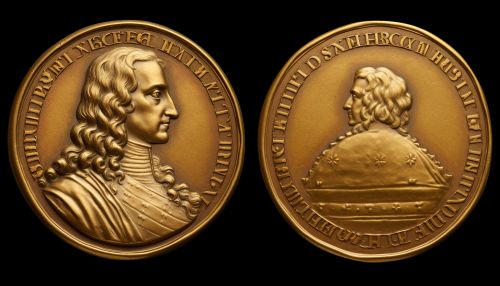Gottfried Wilhelm Leibniz Prize
Overview
The Gottfried Wilhelm Leibniz Prize is a prestigious award given annually by the Deutsche Forschungsgemeinschaft (DFG), the German Research Foundation. It is named after the prominent German polymath, Gottfried Wilhelm Leibniz, who made significant contributions to various fields such as philosophy, mathematics, and logic. The prize is awarded to scientists and scholars working in Germany who have demonstrated exceptional promise in their academic work.


History
The Leibniz Prize was first established in 1985 by the DFG with the aim of improving the working conditions of outstanding scientists and academics, expanding their research opportunities, relieving them of administrative tasks, and helping them employ particularly qualified young researchers. Since its inception, the prize has gained a reputation as one of the most prestigious academic awards in Germany.
Selection Process
The selection process for the Leibniz Prize is rigorous and highly competitive. Nominations can be made by any scientist or academic working in Germany, and self-nominations are not accepted. The DFG's various scientific review boards evaluate the nominations and make recommendations to the selection committee, which is composed of ten distinguished scientists and academics. The selection committee then makes the final decision on the award recipients.
Prize
The Leibniz Prize includes a monetary award of up to 2.5 million euros, making it one of the most highly endowed research prizes in Germany. The prize money is provided for a period of up to seven years and can be used at the recipients' discretion to fund their research activities. This gives the recipients a great deal of freedom and flexibility in their research, allowing them to pursue innovative and high-risk projects.
Impact
The Leibniz Prize has had a significant impact on the scientific and academic community in Germany. It has helped to raise the profile of German research internationally and has contributed to the advancement of various fields of study. Many past recipients of the Leibniz Prize have gone on to receive other prestigious awards, including the Nobel Prize.
Notable Recipients
Over the years, the Leibniz Prize has been awarded to a diverse range of scientists and scholars. Some notable recipients include mathematician Gerd Faltings, physicist Theodor W. Hänsch, and chemist Gerhard Ertl, all of whom later won the Nobel Prize.
Criticisms
Despite its prestige, the Leibniz Prize has not been without criticism. Some have argued that the prize is too focused on the natural sciences and does not adequately recognize achievements in the humanities and social sciences. Others have criticized the lack of diversity among the prize recipients, particularly in terms of gender and ethnicity.
